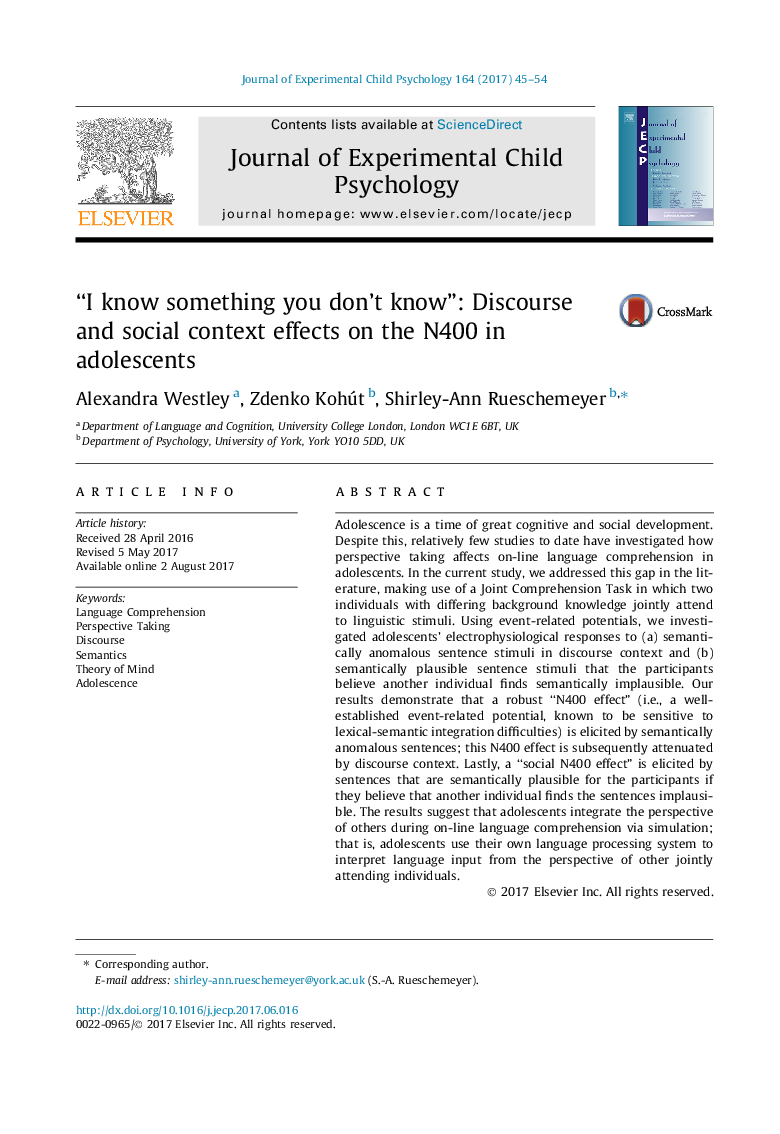| Article ID | Journal | Published Year | Pages | File Type |
|---|---|---|---|---|
| 5039944 | Journal of Experimental Child Psychology | 2017 | 10 Pages |
â¢Adolescents, like adults, simulate language comprehension from the perspective of other jointly attending listeners.â¢Adolescents use discourse context to override local semantic ambiguities.â¢The Joint Comprehension Task provides a novel paradigm to study Theory of Mind during language comprehension in a time-locked manner.
Adolescence is a time of great cognitive and social development. Despite this, relatively few studies to date have investigated how perspective taking affects on-line language comprehension in adolescents. In the current study, we addressed this gap in the literature, making use of a Joint Comprehension Task in which two individuals with differing background knowledge jointly attend to linguistic stimuli. Using event-related potentials, we investigated adolescents' electrophysiological responses to (a) semantically anomalous sentence stimuli in discourse context and (b) semantically plausible sentence stimuli that the participants believe another individual finds semantically implausible. Our results demonstrate that a robust “N400 effect” (i.e., a well-established event-related potential, known to be sensitive to lexical-semantic integration difficulties) is elicited by semantically anomalous sentences; this N400 effect is subsequently attenuated by discourse context. Lastly, a “social N400 effect” is elicited by sentences that are semantically plausible for the participants if they believe that another individual finds the sentences implausible. The results suggest that adolescents integrate the perspective of others during on-line language comprehension via simulation; that is, adolescents use their own language processing system to interpret language input from the perspective of other jointly attending individuals.
